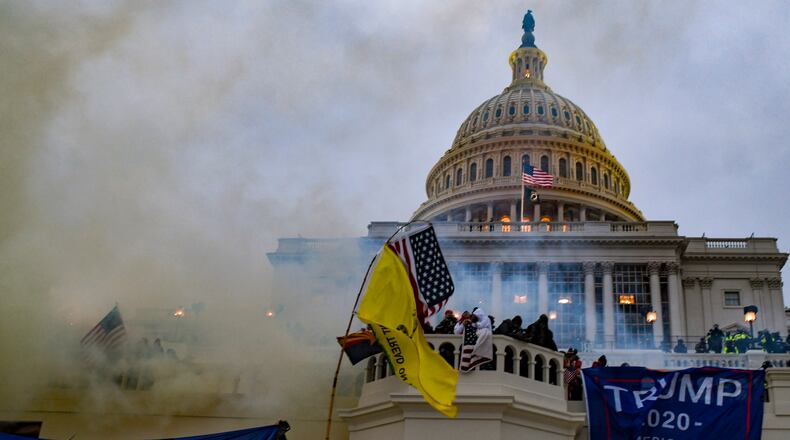The latest indictments against former President Donald Trump were also a reminder that no matter his legal troubles, the Jan. 6 investigation continues to move methodically forward, with each week seemingly bringing new convictions, arrests and details.
“The attack on our nation’s capital on Jan. 6, 2021, was an unprecedented assault on the seat of American democracy,” special counsel Jack Smith said as he unveiled the new federal charges against Trump.
While it doesn’t get as much attention as Trump’s case, the feds continue to identify rioters who attacked police officers at the U.S. Capitol that day — and it continues to pay off.
In July, a Douglasville man was arrested and charged with attacking police on Jan. 6. Phillip Crawford is alleged to have been ”indiscriminately grabbing and punching” officers at the Capitol.
While the arrests continue, the trials do as well. One Georgia man was sentenced just last week to 12 months in jail for assaulting a police officer and other crimes. Bruno Joseph Cua was found guilty of two felony charges.
The pace of the Jan. 6 investigation has quickened this summer — more than two years after the attack — as June and July were the most active months so far in 2023 in terms of new cases.
The continuing prosecutions have gotten under the skin of some Republicans, leading U.S. Rep. Marjorie Taylor Greene of Rome to file impeachment charges against Matthew Graves, the U.S. attorney for the District of Columbia.
“Graves has prosecuted hundreds of individuals who participated in a political protest,” said Greene, who accused Graves of ”criminalizing political dissent.”
Next up for Trump may be charges from the Fulton County investigation, which has also investigated the fake elector scheme hatched by Republicans.
On Capitol Hill, there are still unanswered questions about how Trump allies tried to get fake GOP elector documents to Vice President Mike Pence — in hopes that he would block electoral votes from states such as Georgia where Trump lost.
On Jan. 5, 2021, staffers with U.S. Rep. Mike Kelly, R-Pa., tried to deliver fake elector documents from Michigan and Wisconsin to Senate officials — but were rebuffed.
The next morning, a Trump agent asked for help from U.S. Sen. Ron Johnson, R-Wis., trying to get the same materials into the hands of Pence. That didn’t work either.
No similar tales have emerged about the Georgia fake electors and their documents — but we’ll see what we learn in the days ahead.
We do know that Donald Trump will likely soon face an unprecedented fourth criminal indictment. As the special counsel said, the Jan. 6 investigation isn’t over.
Jamie Dupree has covered national politics and Congress from Washington since the Reagan administration. His column appears weekly in The Atlanta Journal-Constitution. For more, check out his Capitol Hill newsletter at http://jamiedupree.substack.com.
About the Author
Keep Reading
The Latest
Featured


